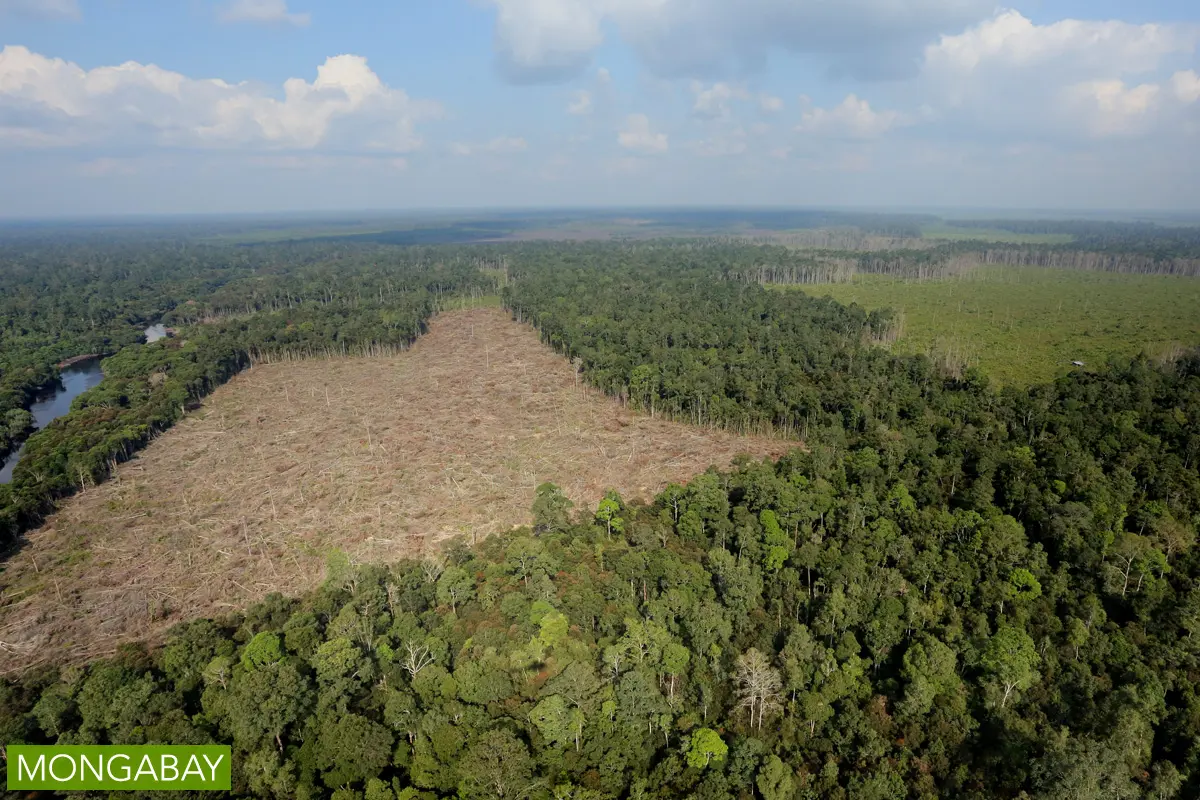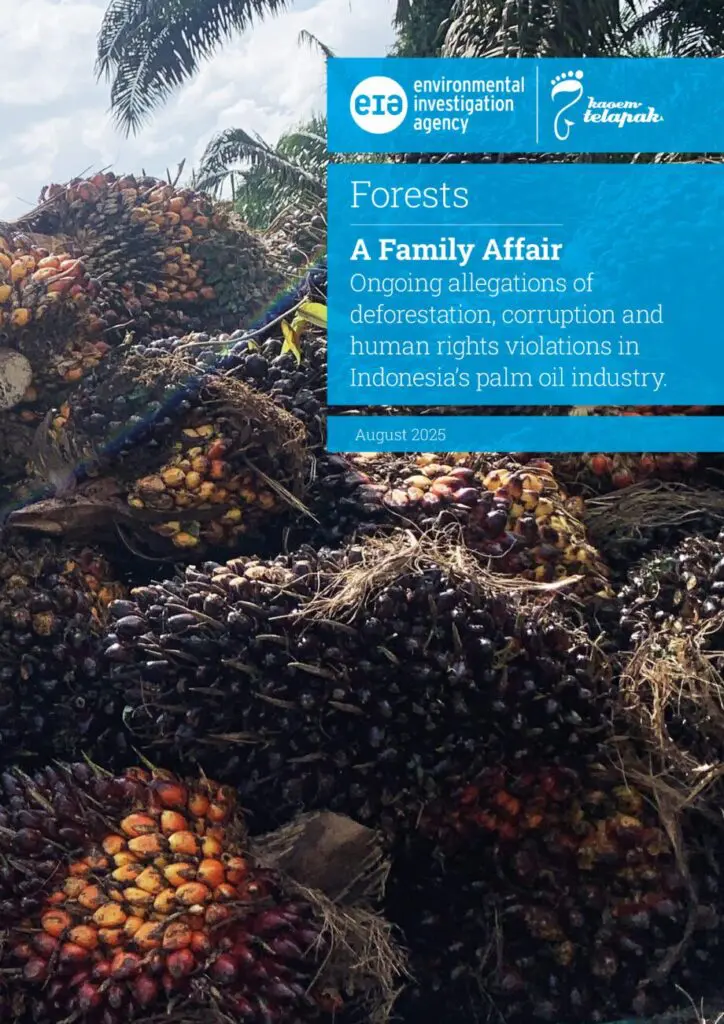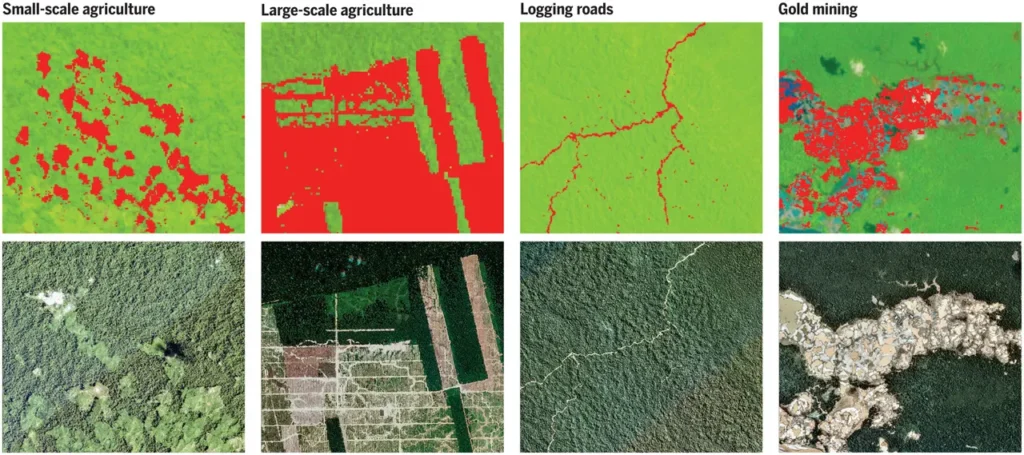Intro: A Step Into the ‘Big’ World
Corruption inside tiger range countries could not thrive without the comfort of looking outward and finding partners who prefer profit to principle. Every major infrastructure loan, every global trade agreement that ignores environmental due diligence, becomes a license to destroy habitat.
Political failure is internationalised when donor nations preach transparency yet accept timber, palm oil, or minerals whose extraction was made possible by bribery and intimidation. The same banks that sponsor biodiversity summits or even NGOs finance plantations and mines that erase the tiger’s forest corridors. This hypocrisy keeps the supply chains moving while reputations stay clean.
Development finance institutions still classify wildlife loss as “externalities.” Conservation agencies speak at the same conferences as the corporations whose concessions border reserves. None want confrontation; everyone wants partnership. The result is a self-reinforcing system in which corruption is rebranded as investment or cooperation. Governments claim credit for attracting foreign capital, donors claim progress for disbursing loans, and NGOs celebrate “multi-stakeholder dialogue.”
One of the biggest NGOs in tiger conservation has partnered with a bank, which history has tight financial links with the root cause of destroying the Malayan rainforest and important tiger habitat. And another big NGOs in tiger conservation is funded with the money earned by exploiting tigers on a large scale. It’s the hypocrisy of the ‘big’ world where even the ‘noble’ players lie and cheat, still being the kids that need to grow up.
Meanwhile, rangers return from patrols without fuel money. Political failure hides behind polite applause.
Money Laundering Through Conservation
Corruption rarely hides in envelopes anymore. It hides in projects labelled “green”. Across Asia and Africa, “eco-tourism” has become a preferred vehicle for laundering political donations. Resorts appear inside buffer zones under the pretext of community development, without any of the locals working at the places. Road contracts justified as access for tourists become transport corridors for timber and contraband. Budgets for wildlife monitoring are inflated to create procurement margins.
These patterns repeat because oversight is weak and because too many international NGOs depend on the same ministries they should be auditing.
Foreign donors enable the cycle by rewarding paperwork. As long as quarterly reports arrive on time, no one asks whether patrols actually occurred. In some countries, conservation grants pay salaries to some officials already drawing government pay. Double-dipping becomes normalized.
Political failure, measured by outcomes, is disguised as success measured by expenditure. The tiger vanishes between accounting lines.
Elite Capture and the Politics of Prestige
In every tiger range country there exists a political aristocracy for whom wildlife is an emblem of power. They build private safaris, fund glossy documentaries, and sit on conservation boards while their business partners extract timber or sand from protected landscapes. This elite capture converts the tiger from a symbol of ecological balance into a prop of status. The very people photographed releasing cubs are those signing the deals that destroy corridors. Corruption, in this form, is ceremonial. It wears khaki for the cameras and silk in the boardroom. The golden ticket for political failure.
The pattern persists because media coverage still treats elite gestures as leadership. A minister inaugurates a park gate and earns headlines; a whistleblower reveals a permit scandal and earns a lawsuit. Political failure is sustained by narrative management: image replaces integrity. Real reformers rarely get invited to the podium because they disturb the choreography of consensus.
Administrative Corruption and the Quiet Theft of Time
Not all corruption involves money, as said before. Some is measured in delay. Bureaucrats stall permits for genuine conservation initiatives until bribes arrive. Critical research papers remain unpublished because reviewers fear offending superiors. Ranger promotions freeze when they report irregularities. Each delay bleeds momentum.
By the time an honest proposal clears the maze, the forest it sought to save has been logged. Political failure often looks like nothing happening at all—because nothing is allowed to happen without permission.
Within ministries, transfers are the preferred weapon to create political failure. Officers who ask hard questions are posted to remote districts; those who comply are rewarded with urban posts. The message is understood: obedience is safer than results. In this climate, even well-meaning officials learn survival tactics—sign quickly, speak cautiously, and keep your head down. The system does not need to order corruption; it only needs to cultivate fear of honesty.
Judicial Paralysis and Selective Enforcement
Courts should be the refuge against political failure, but many have become its mirror. Wildlife cases drag for years because judges rotate, evidence degrades, and defence lawyers exploit procedural gaps. Conviction rates remain in single digits. In several tiger range countries, special environmental courts exist only on paper; budgets never arrive. Where judgments are delivered, sentences are often suspended on appeal. The message to traffickers and corrupt officials is clear: the law can be delayed indefinitely, and delay equals impunity.
Some judges show courage. In India, the Supreme Court’s interventions have occasionally halted destructive projects. In Indonesia and Malaysia, anti-graft commissions have exposed logging cartels. Yet these flashes of integrity remain isolated. Without consistent oversight, each ruling is a stone in the river rather than a bridge. The flow of corruption simply detours around it.

The Revolving Door of Politics and Profit
One of the least discussed forms of corruption is the migration of officials into industries they once regulated. Retired forest officers become consultants for plantation companies; former ministers join boards of mining firms. This revolving door institutionalises conflict of interest. Policies are written with future employment in mind. Political failure, therefore, is not only an absence of courage but the presence of career planning. The same hands that sign conservation policies later sign corporate deals exploiting those policies’ loopholes.
Campaign finance deepens the rot behind political failure. In election seasons, corporate donors purchase silence. Enforcement agencies avoid raids that could embarrass patrons. Protected areas become rally backdrops rather than sanctuaries. Once power changes hands, new actors demand their turn at the trough. The tiger, voiceless and stateless, pays the continuity tax of corruption.
Foreign Complicity and Laundering Through Legality
International traders exploit the inconsistencies between national laws. A shipment declared as “captive-bred specimens” in one country becomes “museum items” in another. Certificates of origin are sold online; customs stamps are forged. Shipping lines, insurers, and port authorities profit from movement fees while disclaiming knowledge of cargo content. When evidence surfaces, liability dissolves across jurisdictions. The web of legality becomes a laundering mechanism, cleansing dirty transactions through clean paperwork.
Political failure here is global. Western governments denounce trafficking but import luxury goods made possible by it. They sanction poachers while courting the oligarchs who fund them. Financial institutions in London, Zurich, and Singapore host accounts linked to environmental crime yet face minor fines at most. The disparity is moral as much as legal: corruption is condemned only when it is poor.

Diplomacy and Denial
At summits, officials prefer optimism to honesty. They speak of partnerships, frameworks, and roadmaps. Rarely do they name corrupt actors or admit that certain projects are criminal by design. Diplomacy rewards politeness, but conservation demands confrontation. The gap between the two is where tigers disappear. Political failure is perpetuated by the fear of losing face. Nations measure prestige by the size of their delegations, not by the integrity of their enforcement records.
Meanwhile, frontline officers operate without backup. Requests for cross-border operations languish in embassies. Joint task forces meet once, issue communiqués, international attention and dissolve. The bureaucratic choreography of cooperation substitutes for the real work of dismantling networks. Traffickers, unconstrained by protocol, move faster than memoranda.
The Myth of Endless Summits to Hide Political Failure
Every few years the global community convenes a new tiger summit. Declarations multiply; outcomes do not. The St Petersburg summit, organized and hosted by the WorldBank, promised to double wild tiger numbers by 2022. That deadline passed with poor results and little accountability. Some populations did increase, mainly in tiger range countries that were already committed to tiger conservation. It happened where governance improved, but habitat loss and corruption erased gains elsewhere. Yet the model repeats: convene, declare, disband. Political failure hides in ceremony because ceremony looks like progress. But it’s not. It’s degradation. A
Within these gatherings, corruption is rarely named. Delegates who raise it risk isolation; funders prefer safer topics. The deeper truth—that environmental crime survives because of political complicity—remains the unspoken rule of international conservation. Until that taboo breaks, the next summit will be as hollow as the last.
The Silence of Data
Perhaps the most insidious effect of corruption is the manipulation of information. Government scientists are instructed to revise findings that threaten economic interests. Independent researchers are denied permits or visas. Statistical agencies classify poaching incidents under vague categories like “natural mortality.” When watchdog groups publish alternative estimates, officials (and connected media) accuse them of bias. Political failure thrives on ignorance; corruption manufactures it.
Without credible data, planning becomes guesswork. Budgets follow narratives rather than needs. Donors cannot measure success; citizens cannot demand results. The tiger becomes an abstraction—a number on a slide, a ghost on a graph—while the system congratulates itself for transparency reports nobody can verify.
The Cost of Silence within Conservation Institutions
Inside many conservation agencies, silence has become survival. Field officers quickly learn that pointing out corruption means career suicide. Reports describing embezzled patrol funds or fake monitoring data are quietly edited before publication. Senior managers, reliant on ministerial goodwill, bury evidence of wrongdoing to protect “program continuity.” Political failure thus penetrates even the institutions designed to prevent it. Internal oversight committees meet, write recommendations, and file them into archives.
The message is clear: protect the image, not the truth.
International NGOs are not immune. They compete for government access and donor grants, so they avoid conflict with government officials controlling permits. Consultants recycle success stories from one project to another, creating a fiction of progress. The donor community, unwilling to lose partners or headlines, rewards optimism. Corruption prospers in this ecosystem of politeness. The tiger disappears beneath a mountain of press releases.
Panthera.org is an NGO that is facing criticism about its transparency. In their own words: Panthera is creating a world where wild cats thrive in healthy, natural and developed landscapes that sustain people and biodiversity. Through cutting-edge scientific research, strategic species recovery, habitat restoration and collaboration with communities and partners, we’re protecting the world’s 40 species of wild cats and helping ensure a future for us all.
What they don’t tell on their website is where their money is coming from and that it’s founder is Thomas S. Kaplan, a billionaire who made it’s fortune by exploiting mines and destroying nature, which he is still doing today. In the past Panthera faced heavy criticism because they appointed Mark Bristow as their CEO, then the founder of Randgold, and at the time a London-listed mining group who invested in Panthera. The criticism was not only about the greenwash attempts, but also because the South Aftrican Mark Bristow was a fervent trophy hunter.



Citizenship and the Price of Apathy
Corruption flourishes where citizens stop asking questions. In many tiger range countries, public participation in environmental decisions is minimal or symbolic. Hearings are staged after contracts are signed. Freedom of information laws exist but require fees or endless appeals. Environmental journalists risk intimidation; community activists face defamation suits. Political failure is reinforced by public fatigue—the sense that protest changes nothing. Each generation grows accustomed to smaller forests and lower expectations.
Yet when communities are informed and united, corruption retreats. In central India, local cooperatives monitoring forest rights have exposed illegal logging tied to politicians. In Thailand, village networks now use smartphones to report encroachment directly to national watchdogs. In Nepal, youth groups crowd-fund ranger gear when budgets vanish. These acts of micro-accountability do not replace state responsibility, but they prove that civic vigilance still matters. In the UK an NGO is constantly calling out the Chinese government to stop with tiger farming.
The antidote to political failure is participation, even when it feels futile.

Media, Intimidation, and Narrative Control
Independent journalism remains the most effective disinfectant against corruption, but it is also the most endangered. Reporters investigating wildlife trafficking or illegal mining often rely on leaked documents from insiders. Once their stories appear, advertisers withdraw under political pressure, and editors are reminded of defamation laws. Some governments fund “fact-checking units” whose real task is to discredit inconvenient investigations. Political failure therefore extends into language: words themselves are regulated to protect power.
Still, digital media has opened cracks in censorship. Satellite images published on open platforms now expose deforestation faster than official reports. Citizen scientists map new roads through reserves before ministries admit their existence. Each disclosure chips away at denial.

But sustaining such work demands legal protection and financial independence—two things corruption systematically erodes.
Financial Transparency and Reform Blueprints
Fixing political failure begins with following the money. Every conservation budget should be public, line by line. Procurement portals must show bidders, contract values, and completion reports. Wildlife fines and compensations should flow into traceable accounts, not discretionary funds. When citizens can see where money goes, corruption loses oxygen. Technology can help: digital payments to rangers reduce theft; satellite verification of patrol routes prevents ghost reporting; blockchain tracking of timber permits exposes duplication. But transparency tools work only when governments commit to publishing the data without edits.
Next, asset-declaration laws must cover officials managing natural resources. A forest officer with unexplained property should face the same scrutiny as a tax inspector. Anti-corruption commissions should treat wildlife crimes as predicate offences for money-laundering investigations, enabling asset seizure beyond borders. Political failure persists because corruption remains profitable; the cure is to make it ruinous.
Rebuilding Institutions from the Inside
Institutional reform is less glamorous than summits but a lot more essential. Recruitment for park staff must prioritise competence over patronage. Ranger academies should include ethics training and whistle-blower protocols. Performance indicators should measure ecological results, not attendance at meetings. Promotions must be insulated from political influence through independent boards. When officers know integrity is rewarded, the incentive to collude diminishes.
Equally critical is judicial reform. Special environmental courts require real budgets, trained prosecutors, and timelines for verdicts. Case-management software should publish trial status online so citizens can track progress. Transparency converts distant courtrooms into public theatres of accountability. When justice is visible, corruption shrinks.
Regional Cooperation and Shared Accountability
Tiger range countries cannot fight corruption alone. Trafficking networks exploit every jurisdictional gap. A unified regional mechanism—modeled on financial-crime task forces—could share intelligence in real time. Such a body must report to the public, not just to ministers. Its success should be measured by prosecutions and asset recovery, not by the number of meetings held. Donor nations should fund this cooperation but with binding disclosure clauses. If political failure is transnational, so must be accountability.
Regional peer review can also shame complacency. When one country hides enforcement data, neighbors should demand answers. Mutual pressure works better than external lectures. The tiger’s range is shared; its survival should be a collective test of governance.
The Moral Economy of Tiger Survival
Beyond laws and budgets lies ethics. Political failure is ultimately moral failure—the decision to value convenience over duty. Corruption survives because society tolerates small betrayals until they accumulate into catastrophe. A ranger taking fuel money from patrol funds feels justified when ministers steal millions. A voter selling a ballot believes corruption is normal. The tiger’s extinction begins in that normalization. Reversing it requires moral re-education, not just legal reform.
Religions, schools, and cultural institutions have roles here. In countries where tigers hold spiritual symbolism, priests and teachers can link faith with stewardship. National pride must be tied to integrity, not propaganda. When corruption is seen as shame rather than skill, political failure loses its social armor.
Technology, Transparency, and People Power
Public technology can democratize oversight. Crowdsourced mapping, open data dashboards, and AI-driven analysis of satellite imagery allow citizens to verify government claims. In India and Indonesia, independent data collectives already monitor forest-cover changes weekly. When discrepancies appear, social media amplifies them, forcing official responses. These digital tools cannot arrest poachers, but they can corner politicians. Every verified lie shrinks the space for corruption to hide.

However, data activism must avoid cynicism. Endless exposure without consequence breeds apathy. The goal is not humiliation but reform—evidence that triggers policy correction. Political failure ends only when transparency leads to tangible outcomes: canceled permits, recovered funds, protected habitat.
Global Responsibility and Conditional Aid
Wealthy nations funding conservation in tiger range countries must stop pretending neutrality. Aid should be conditional on governance reforms and anti-corruption audits. Multilateral banks must publish environmental loan performance metrics. If a government repeatedly misuses conservation funds, new tranches should freeze until accountability measures are in place. Donors fear being accused of neocolonialism, but enabling corruption is worse. Respect does not mean indulgence; partnership requires honesty.
International law can evolve too. Wildlife crime should trigger the same financial-sanction mechanisms used against terrorism and human trafficking. When elites realize their overseas assets are at risk, reform will accelerate faster than a decade of conferences. The world already tracks dirty money for tax evasion; extending that vigilance to environmental plunder is both logical and overdue.
From Exposure of Political Failure to Transformation
Information alone cannot end corruption; collective action can. Civil-service unions, journalists, lawyers, and citizens must collaborate across borders. Whistle-blower networks can protect insiders who reveal grand corruption in habitat-related projects. Crowdfunded legal aid can help prosecute officials who misuse conservation budgets. Each successful case chips at the armor of impunity. Political failure collapses when society learns that integrity is contagious.

Education completes the cycle. When schools teach civic ethics alongside ecology, children grow up equating conservation with citizenship. They understand that saving tigers is not charity but governance in practice. Corruption then becomes the true enemy of national pride. This moral clarity transforms protection from a niche concern into a patriotic duty.
Outro: Accountability or Extinction
Political failure is the root from which all other tiger threats grow. Poaching, deforestation, and trafficking are symptoms; corruption is the disease. Tigers do not die for lack of laws—they die because those laws are for sale. Reform will succeed only when transparency, prosecution, and civic courage intersect. That intersection defines civilization itself.
The survival of tigers across Asia will show whether democracies can clean their own house and whether autocracies can restrain their elites. It will reveal if global institutions prefer comfort or consequence. The answer is not theoretical: every day of delay erases forest and bloodlines alike.
Political failure has already written the first draft of extinction.
Integrity must write the last.






